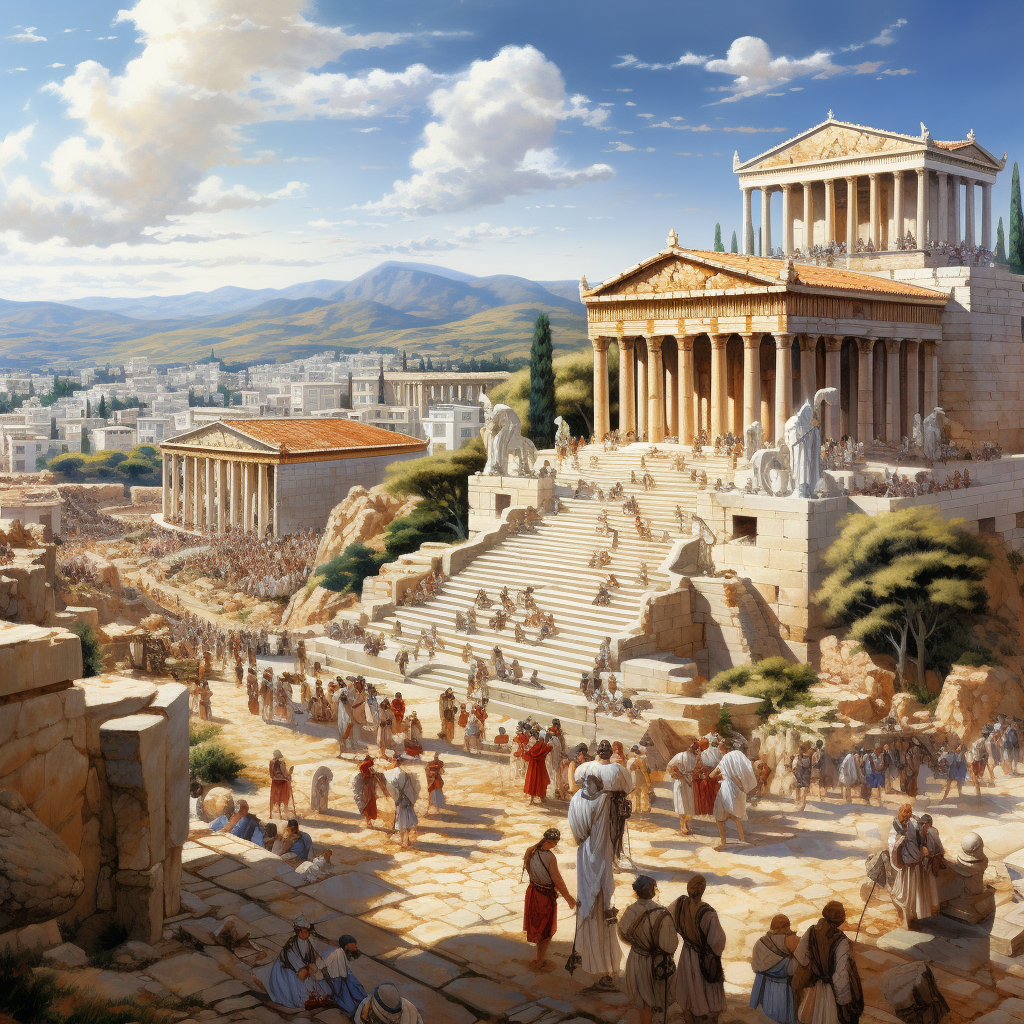
The Golden Age of Athens: A Pinnacle of Ancient Civilisation
Exploring the Golden Age of Athens, Including the Glorious Era of Athenian Democracy, Art, and Philosophy
Embark on a journey back to the Golden Age of Athens, an era that laid the foundations for Western civilisation. In this post, we’ll uncover the wonders of this period, from its democratic institutions to its unparalleled cultural achievements. Here’s your quick 5 guide to what’s ahead:
- Birth of Democracy: How democracy flourished in ancient Athens.
- Philosophical Landmarks: The contributions of great philosophers.
- Artistic Renaissance: Exploring Athenian art and architecture.
- Theatrical and Literary Brilliance: The legacy of Athenian drama and literature.
- Enduring Influence: How this era continues to impact us today.
The Golden Age of Athens witnessed the birth of democracy, a system of government where power was vested in the hands of the people. This revolutionary idea changed the course of history, shaping political thought and practice for centuries to come.
In Athens, citizens participated in direct democracy, contributing to decision-making in the Assembly. The creation of laws, public policy, and even judicial verdicts were in the hands of the people, a stark contrast to the monarchies and oligarchies of the time. Learn more.
The era was a golden age for philosophy, with figures like Socrates, Plato, and Aristotle laying the groundwork for Western philosophical thought.
Their teachings on ethics, politics, metaphysics, and epistemology have profoundly influenced subsequent intellectual and cultural history. These philosophers questioned the nature of knowledge and existence, fostering an environment of inquiry and debate. Learn more.
Athenian art and architecture reached new heights during this period, characterised by an emphasis on symmetry, proportion, and harmony.
Monuments like the Parthenon stand as testaments to the architectural genius of the age. Sculptures and pottery depicted the human form with unprecedented realism and grace, reflecting the Athenians’ appreciation for beauty and humanism. Pericles’ public works, like the Parthenon, defined classical Greek architecture with its distinct columns and pediments showcasing elaborate scenes. The sculptors of the era, like Phidias and Polykleitos, mastered the art of creating realistic human forms, marking a significant evolution in artistic expression. Learn more.
The era also witnessed the flowering of drama and literature, with playwrights like Sophocles, Euripides, and Aristophanes making significant contributions.
Their works, which explored themes of human nature, politics, and morality, are still celebrated for their deep insights and artistic merit. Athenian literature and theater left a lasting legacy, influencing storytelling and performance arts for generations. Learn more.
The Golden Age of Athens remains a beacon of human achievement. Its innovations in government, philosophy, art, and literature continue to inspire and inform our world today. As we reflect on this remarkable era, we are reminded of the enduring power of human creativity and ingenuity.
Call to Action: Dive deeper into the Golden Age of Athens. Explore its lasting impact on modern society and share your insights. Let’s continue to learn from this remarkable era and apply its wisdom in our lives today. Join the conversation on our social media platforms and keep the legacy of Athens alive. Engage with us.